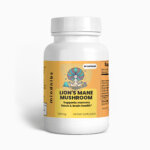
“Supplements vs Whole Foods: Striking a Balance for Optimal Health”
In today’s world where people are hustling and bustling to keep up with their fast-paced lives, the importance of good health cannot be emphasized enough. With the rise of health enthusiasts and fitness gurus, there is an ever-increasing demand for supplements, vitamins and other health products to boost vitality and wellness. However, with so many products on the market, it can be challenging to decipher what is most beneficial to our bodies. On the other hand, whole foods – i.e. naturally occurring foods, are often neglected in the race for optimal health. In this article, we discuss the pros and cons of supplements versus whole foods and explore ways to strike a wellbeing balance for optimal health.
1. The Truth about Supplements and Whole Foods for Optimal Health
The Benefits of Supplements and Whole Foods for Optimal Health
There is a longstanding debate on whether supplements or whole foods provide the best nutrition for optimal health. However, the truth is that both can work together to promote optimal health. Supplements help fill in the gaps in a person’s diet, while whole foods provide the essential macronutrients and micronutrients needed for overall health.
Supplements are a great way to ensure that a person is getting the recommended daily dose of important nutrients such as vitamins, minerals, and antioxidants. While it’s always best to get these nutrients from whole foods, it’s not always possible. Supplements can be especially helpful for people with dietary restrictions, such as vegans or those with food allergies. When selecting supplements, it’s important to choose high-quality products from reputable sources.
Whole foods are equally important for optimal health. They provide the essential macronutrients and micronutrients the body needs to function properly. Eating a balanced diet that includes a variety of fruits, vegetables, whole grains, lean proteins, and healthy fats is key. A diet rich in whole foods has been linked to lower rates of chronic diseases such as obesity, diabetes, and heart disease. Incorporating more whole foods into your diet is easy and can be done by swapping out processed foods for whole foods whenever possible.
- Overall, taking supplements and consuming whole foods are both important for optimal health.
- Supplements help fill in the gaps in a person’s diet, while whole foods provide the essential macronutrients and micronutrients needed for overall health.
- When selecting supplements, it’s important to choose high-quality products from reputable sources, and a balanced diet rich in whole foods has been linked to lower rates of chronic diseases such as obesity, diabetes, and heart disease.

2. The Pros and Cons of Supplements: Benefits vs Risks
Supplements are a popular and convenient way to support your health and wellness goals. However, they come with both benefits and risks. Here are some of the pros and cons of taking supplements:
- Pros: One of the main benefits of supplements is that they can help fill in gaps in your diet. If you do not consume enough vitamins and minerals through your diet, supplements can be a helpful alternative. Additionally, supplements can help support specific health concerns, such as joint health or digestive issues. Finally, some supplements can provide an energy boost or improve cognitive function.
- Cons: There are also risks associated with taking supplements. One major concern is that supplements are not regulated like drugs. This means that the quality and safety of supplements can be inconsistent. Additionally, some supplements can interact with other medications you may be taking, causing potential health complications. Finally, taking high doses of certain supplements, such as vitamin A or iron, can be toxic and lead to serious health concerns.
In conclusion, supplements can be a valuable addition to your health and wellness routine. However, it is important to consider the potential risks and benefits before adding supplements to your daily regimen. It is also essential to speak with your healthcare provider before taking any new supplements to ensure they are safe and will not interfere with any other medications or health concerns you may have.

3. The Pros and Cons of Whole Foods: Nutrients vs Calories
The Pros of Whole Foods: Nutrients Over Calories
One of the biggest advantages of whole foods is that they are packed with nutrients that our bodies need to function optimally. Whole foods are rich in vitamins, minerals, antioxidants, fiber, and other beneficial compounds that are essential for good health. Foods such as fruits, vegetables, whole grains, legumes, nuts, and seeds are particularly nutrient-dense and provide us with a wide range of nutrients that are difficult to obtain from processed or refined foods.
Whole foods also tend to be less calorie-dense than processed foods. Because they are complex and fibrous, they take longer to digest and provide a more gradual release of energy into our bloodstream. This means that we feel fuller for longer and are less likely to overeat or consume excess calories. Focusing on whole foods is a great way to maintain a healthy weight and avoid the problems associated with overeating or consuming too many calories.
The Cons of Whole Foods: Cost and Convenience
One of the main downsides of whole foods is that they can be expensive, especially if you live in an area where fresh produce is hard to come by or if you opt for organic options. Although it is possible to eat a healthy diet on a budget, it can be challenging to find affordable options, particularly if you’re on a tight budget. However, investing in your health by choosing whole foods is an investment in your long-term wellbeing that can pay off in many ways, from reduced healthcare costs to increased energy and vitality.
Another potential downside of whole foods is that they can be less convenient than their processed counterparts. For example, fresh produce requires washing, peeling, and slicing before use, which can be time-consuming. However, there are many strategies that you can use to make whole foods more convenient, such as meal planning, batch cooking, and using frozen fruits and vegetables. By putting in a little extra effort to prepare whole foods, you can reap the benefits of improved health and wellbeing that they offer.
The Bottom Line: Choosing Nutrient-Dense Whole Foods
While there are some downsides to choosing whole foods, the benefits far outweigh the costs in terms of overall health and wellbeing. By choosing nutrient-dense whole foods over processed or refined options, you can provide your body with the fuel it needs to stay healthy, energized, and functional. Although cost and convenience can be challenges, there are many strategies that you can use to overcome these obstacles and make healthy eating a regular part of your lifestyle. In conclusion, choose whole, nutrient-dense foods as much as possible for optimal health.
4. Finding the Balance: The Art of Combining Supplements and Whole Foods
Maintaining a balanced diet is essential to live a healthy life, and choosing between supplements and whole foods can be daunting. Supplements and whole foods are both essential, but the art of combining the two can help you achieve the perfect balance of nutrients. In this section, we’ll discuss how to combine supplements and whole foods to make the most of your diet.
One way to balance whole foods and supplements is by focusing on your nutritional needs. For example, if you’re lacking in a specific nutrient, supplements can provide a fast and convenient way to boost your levels. But it’s essential to remember that supplements can’t replace whole foods, and they’re not right for everyone. It’s crucial to consult with your healthcare provider before adding any supplements to your diet.
Another way to ensure you’re combining supplements and whole foods effectively is by choosing high-quality and natural supplements. Look for supplements that are non-GMO and free from artificial ingredients. The same principles apply to whole foods, choose organic, and fresh produce. To achieve balance, consider incorporating nutrient-rich foods such as leafy greens, legumes, and fruits into your diet.
Finally, maintaining a balanced diet comes down to moderation. When combining supplements with whole foods, it’s essential to eat a balanced diet and not rely too heavily on supplements to meet your nutritional needs. Remember that whole foods provide a range of nutrients and essential fibers that supplements cannot offer. Listen to your body, and if you’re unsure, consult with your healthcare provider to achieve optimal nutrition.
Finding the balance between supplements and whole foods can be challenging, but it’s essential to maintain a balanced diet. Focusing on your nutritional needs, choosing high-quality and natural supplements, and practicing moderation is the key to combining supplements and whole foods effectively. By doing so, you can make the most of your diet and achieve optimal nutrition.
5. The Importance of a Healthy Diet: Why Whole Foods Should Be Prioritized
It is no secret that a healthy diet is important for overall health and well-being. However, not all foods are created equal. While processed foods may be convenient and readily available, they lack the nutritional value of whole foods. Prioritizing whole foods in your diet can have numerous benefits for your health.
Whole foods are those that are minimally processed and do not contain added sugars or artificial ingredients. These foods include fruits, vegetables, whole grains, nuts, and seeds. By choosing whole foods over processed alternatives, you can ensure that your body is getting the nutrients it needs to function properly.
- Better digestion
- Improved energy levels
- Reduced risk of chronic disease
- Improved brain function
In addition to these benefits, whole foods can also help you maintain a healthy weight. Processed foods are often high in calories and low in nutrients, which can lead to overeating and weight gain. On the other hand, whole foods are naturally lower in calories and more filling, making it easier to maintain a healthy weight.
In conclusion, prioritizing whole foods in your diet is essential for optimal health. By choosing foods that are minimally processed and rich in nutrients, you can enjoy numerous benefits, from better digestion to reduced risk of chronic disease. So next time you are grocery shopping, be sure to prioritize whole foods for a healthier life.
6. Understanding Your Nutrient Deficiencies: When Supplements are Necessary
It’s tough to get all the nutrients that your body needs from food alone, especially if you’re following a restrictive diet or dealing with a medical condition. That’s where supplements come in. By taking the right supplements, you can correct nutrient deficiencies and support your overall health and wellness.
The key is to understand which nutrients you might be deficient in and which supplements can help. For example, if you’re vegetarian or vegan, you might not be getting enough vitamin B12, which is primarily found in animal products. Taking a B12 supplement can help ensure that your body gets this essential nutrient.
Other common nutrient deficiencies include vitamin D, magnesium, and omega-3 fatty acids. These nutrients play important roles in everything from bone health to heart health, so it’s important to make sure that you’re getting enough of them. Talk to your healthcare provider to determine which supplements might be necessary for your needs, and be sure to choose high-quality supplements from trusted brands.
- Tip: Don’t take more than the recommended dose of any supplement. High doses of certain nutrients can be toxic and cause negative side effects.
- Tip: Look for supplements that contain active forms of nutrients whenever possible. For example, look for vitamin D3 instead of vitamin D2.
Ultimately, taking supplements is just one piece of the puzzle when it comes to overall health and wellness. It’s important to eat a balanced diet, exercise regularly, and get plenty of sleep in addition to taking supplements as needed. By taking a proactive approach to your health, you can feel your best and prevent nutrient deficiencies from impacting your well-being.
7. Conclusion: Making Informed Decisions for a Healthier You
The choices we make every day directly impact our health and well-being. Therefore, it is crucial to make informed decisions that will work towards creating a healthier life. By considering the following tips, you can improve your lifestyle and overall health.
- Eat a balanced diet that includes plenty of fruits, vegetables, whole grains, and lean protein.
- Stay physically active by participating in activities you enjoy, such as walking, cycling, or playing sports. Aim for at least 30 minutes of physical activity each day.
- Get enough sleep each night to ensure your body and mind are well-rested and ready to tackle the day ahead.
- Practice stress-reducing activities like meditation, yoga, or deep breathing exercises. Stress can negatively impact your health, so it’s essential to manage it effectively.
- Avoid harmful habits like smoking, excessive alcohol consumption, and drug use.
Healthy living is a continuous process that requires commitment, discipline, and effort. Making small changes can have a significant impact on your health, and every step counts towards creating a healthier lifestyle. It’s also essential to seek advice from healthcare professionals when necessary and stay informed about potential health risks and hazards.
By taking control of your health and wellness and making informed decisions, you can lead a more fulfilling life and enjoy all the joys and benefits that come with it. Start your journey towards better health today!
Ultimately, when it comes to achieving optimal health, the main takeaway is that both supplements and whole foods both have their place. Ultimately, the best way to ensure nutritional balance is to strike a balance between employing whole food-based nutrition and using targeted supplements. By factoring in your specific dietary needs and health goals, you can develop an individual plan that will provide your body with the essential building blocks for great health and wellbeing.

























